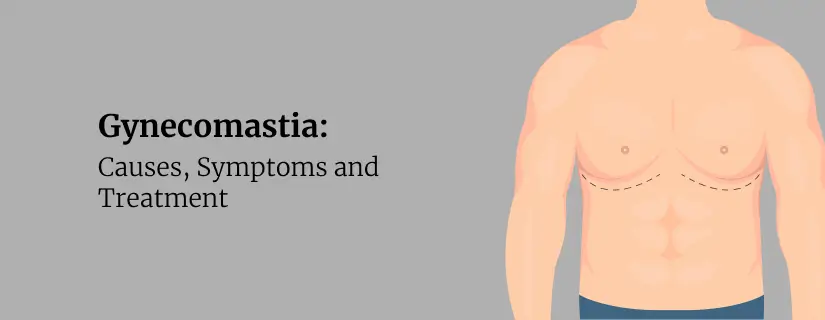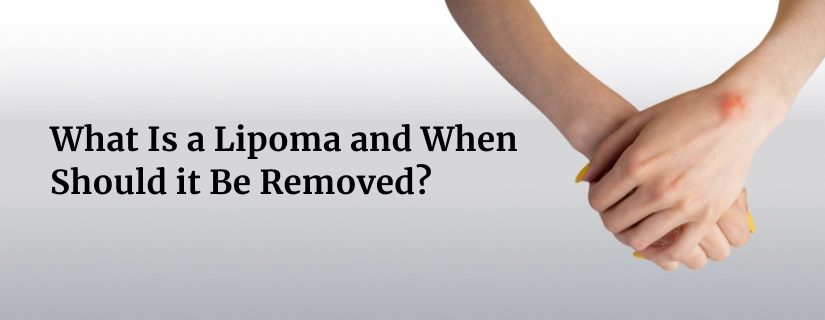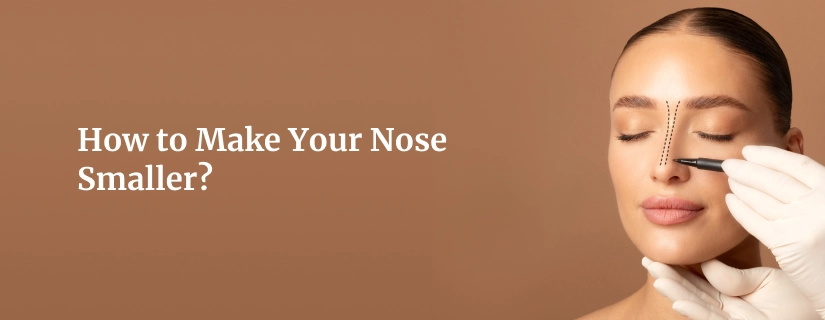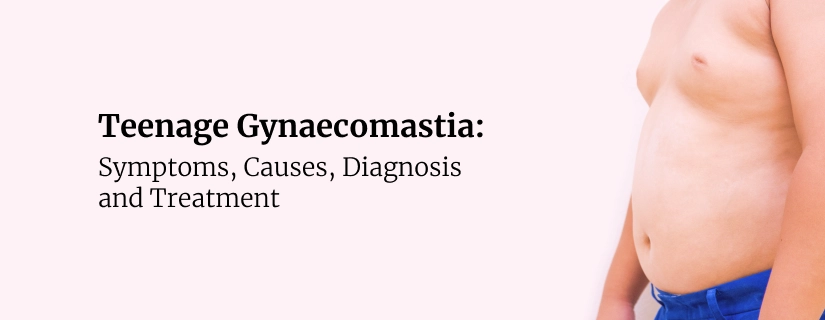-
Doctors
-
Specialities & Treatments
Centre of Excellence
Specialties
Treatments and Procedures
Hospitals & Directions HyderabadCARE Hospitals, Banjara Hills CARE Outpatient Centre, Banjara Hills CARE Hospitals, HITEC City CARE Hospitals, Nampally Gurunanak CARE Hospitals, Musheerabad CARE Hospitals Outpatient Centre, HITEC City CARE Hospitals, Malakpet
HyderabadCARE Hospitals, Banjara Hills CARE Outpatient Centre, Banjara Hills CARE Hospitals, HITEC City CARE Hospitals, Nampally Gurunanak CARE Hospitals, Musheerabad CARE Hospitals Outpatient Centre, HITEC City CARE Hospitals, Malakpet Raipur
Raipur
 Bhubaneswar
Bhubaneswar Visakhapatnam
Visakhapatnam
 Nagpur
Nagpur
 Indore
Indore
 Chh. Sambhajinagar
Chh. SambhajinagarClinics & Medical Centers
Book an AppointmentContact Us
Online Lab Reports
Book an Appointment
Consult Super-Specialist Doctors at CARE Hospitals
Gynecomastia: Causes, Symptoms and Treatment
Updated on 27 June 2024

Gynecomastia is a condition affecting men wherein they develop excessive breast tissues. This mainly stems from hormonal fluctuations but can also result from various other reasons. This condition is also known as "male breasts" due to which many often wonder "can Gynecomastia cause cancer in men?"
While it is quite possible for people to believe that it may cause cancer, there is little truth to it. Before jumping onto the answer, it is imperative to understand the condition, the symptoms associated, and how it can be treated.
What Is Gynaecomastia?
Gynecomastia refers to a condition in which the breasts in males develop excessively or get enlarged, often without any cause. However, the occurrence of this condition can sometimes be attributed to:
- Hormonal fluctuations
- Presence of certain hereditary factors
- Obesity
- Use of certain drugs.
It can mainly be caused by fluctuations in sex hormones, particularly oestrogen and testosterone. While testosterone is predominantly present more in males than females, which is responsible for stopping oestrogen from making the breast tissues grow, there can be an imbalance in this hormone in newborns, due to which they may develop gynecomastia. However, it often resolves on its own.
Men approaching old age can develop gynecomastia as testosterone production slows down, causing higher levels of oestrogen to be present in the body. This fluctuation may also be seen during adolescence, due to which many adolescent males may develop gynecomastia.
Males may also develop gynecomastia due to certain herbal products or medicines, including:
- Anabolic steroids
- Chemotherapy drugs
- Antibiotics
- Anti-androgens
- Medications for ulcers
- Medications for heart diseases, including calcium channel blockers
- Drugs for treating depression and anxiety
- Certain HIV medications
It can occur at any age and can be a source of discomfort for males. The implications of mental distress transcend becoming self-conscious. Males with gynecomastia can experience psychological distress, and may even feel embarrassed to participate in activities like sports. It can negatively impact their social well-being as well.
Symptoms of gynecomastia may not be so prominent in adult males but are often characterised by excessive breast tissues and fat and additional glandular tissue development. There may be swelling and tenderness in the breast tissues of one (unilateral) or both breasts (bilateral). Sometimes, it may begin as a lump which may be unevenly distributed. There may also be persistent swelling with pain, nipple discharge, or a combination of these symptoms.
Can Gynecomastia Cause Cancer?
After learning that gynecomastia resembles the female breast, now gives rise to the question, " does gynecomastia cause cancer?”
The good news is that gynecomastia does not turn into cancer. Breast cancer occurs when the cells of the breast tissues multiply at an abnormal rate. However, gynecomastia is non-cancerous and, therefore, harmless.
The occurrence of lumps or swelling in the breasts can make a person wonder if it is a sign of a tumour, which is generally the first sign of cancer. Although gynecomastia may not lead to cancer, males with this condition should consider consulting a doctor to treat this condition to be on the safe side, as men with a family history of breast cancer may still have some risk of developing breast cancer, although rarely.
To sum up, there is very little chance that gynecomastia can cause cancer. However, it should be treated by a healthcare provider.
What is Involved in the Treatment of Gynecomastia?
Treatment of gynecomastia requires physical and medical evaluation of the patient by an experienced healthcare provider to determine the right course of treatment. The physical evaluation of the patient includes careful examination of the breast tissues along with the abdomen and genitals. Certain tests, such as a blood test and an ultrasonogram, may also be recommended to obtain further information about the causes. In rare cases, further testing may be required to investigate the reasons for symptoms of pain and breast discharge along with a lump in the breast tissue.
In case the lump or breast tissues appear to be abnormally large, tender, or one-sided, the doctor may order a biopsy along with a blood test to rule out breast cancer. If the doctor determines the reason for gynecomastia to be hormonal fluctuations, they may suggest that the condition may be left to resolve on its own. In such cases, gynecomastia typically resolves on its own without treatment between six months and two to three years.
Gynecomastia may also be caused by other conditions and reasons that may be diagnosed or ruled out by other tests. Such conditions may include:
- Abscess or furuncle
- Cyst
- Mastitis, or a condition of inflammation in the breasts
- Benign tumours, such as lipoma or hamartoma
- Hematoma, or a solid swelling of blood clot
- Fat necrosis, or formation of a lump resulting from damage to fatty breast tissues
- Metastatic cancer occurs when cancer has spread from another part of the body and dislodged in the breast
In case gynecomastia is caused by malnutrition, hypogonadism, or cirrhosis, appropriate treatment may be required. Gynecomastia can be treated by surgery, more specifically, male breast reduction surgery, or gynecomastia surgery.
Various surgical options are available for the treatment of gynecomastia.
- Liposuction and high-definition contouring: This surgery helps remove excessive fat from the breast area and mammary glands through small incisions made at strategically located points on the skin. This procedure, in conjunction with liposuction, helps to move around the muscle boundaries to provide a high-definition muscular look.
- Mastectomy: A mastectomy involves the removal of the breast gland tissues through a small incision. It is often performed in conjunction with liposuction.
- Nipple and areolar correction: When reshaping the size of the breast tissues, the size of the areola is corrected in males if the size and shape of breasts are larger than normal.
Medications may also be used for the treatment of gynecomastia. Certain drugs may be used to block the action of oestrogen hormones in the body. It is usually a treatment for breast cancer, but it can also help reduce symptoms of breast pain and breast enlargement due to gynecomastia in males. Testosterone replacement therapy may also help treat gynecomastia in older males who have low testosterone levels.
In case gynecomastia stems from the use of certain drugs or medications, the doctor may recommend switching to another drug or medicine to counteract the effect. If the person is using those medicines or drugs for only some time, the effect in terms of gynecomastia may also be temporary.
Conclusion
Gynecomastia usually resolves on its own without medical intervention, particularly in newborns and younger males. Newborns and young males may experience certain symptoms that may keep decreasing as they age and then completely cease to exist. It may occur in one or both breasts, causing the breasts to get enlarged or overdeveloped. There may be specific causes of this condition, which can be discovered through extensive diagnosis, but sometimes, there may not be any known cause.
Symptoms of gynecomastia should not be ignored, especially if a person with gynecomastia has a family history of breast cancer. Treatments for gynecomastia in males involve the administration or changing of certain medicines and surgical procedures such as liposuction or testosterone replacement therapy. However, treatments for gynecomastia are often unnecessary, as the condition only affects the appearance and rarely causes any discomforting symptoms.

ENQUIRY FORM
SELECT CATEGORIES
-
Neurosciences (16)
-
Neurology (37)
-
Neurosurgery (14)
-
Orthopaedics (48)
-
Oncology (33)
-
Obstetrics and gynecology (52)
-
Pulmonology (23)
-
Urology (20)
-
Nephrology (13)
-
Psychiatry (7)
-
Dietetics and Nutrition (111)
-
General Medicine (63)
-
Cardiac Sciences (32)
-
Vascular & Endovascular Surgery and Interventional Radiology (15)
-
Gastroenterology (46)
-
Endocrinology (23)
-
Plastic Surgery (10)
-
Critical Care Medicine (5)
-
COVID-19 (16)
-
Dermatology (16)
-
Emergency Care (1)
-
Ophthalmology (4)
-
Pediatrics (14)
-
Laparoscopic and Bariatric Surgery (8)
-
ENT (15)
-
Kidney Transplant (1)
-
Liver Transplantation and Hepatobiliary Surgery (5)
-
General Surgery (3)
-
Internal Medicine (5)
-
Medicine Information
What Type of Breast Augmentation is Best: Fat or Silicone Implant?
Tummy Tuck Surgery(Abdominoplasty): Why, Procedure and Recovery
YOU MAY ALSO LIKE
RECENT BLOGS
-

Preterm Birth (Premature Birth): Symptoms, Causes, Treatment and Prevention
13 May 2025
Read More
-

Rotablation Angioplasty: Benefits, Treatments, And Recovery Time
9 May 2025
Read More
-

What Is The Difference Between IUI and IVF?
9 May 2025
Read More
-

Venous Malformations: Causes, Symptoms, and Treatment
30 April 2025
Read More
-

Varicose Vein Foam Sclerotherapy: Treatment, Benefits, and Procedure
30 April 2025
Read More
-

Radiofrequency (RF) Ablation Treatment for Varicose Veins: Know More
30 April 2025
Read More
-

Varicose Vein Sclerotherapy: Treatment, Benefits, and Procedure
30 April 2025
Read More
-

Varicose Vein Endovenous Laser Ablation: Procedure, Benefits, Risks
30 April 2025
Read More
Have a Question?
If you cannot find answers to your queries, please fill out the enquiry form or call the number below. We will contact you shortly.








